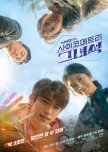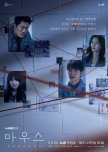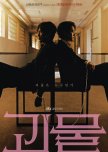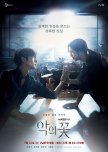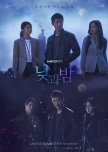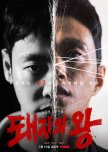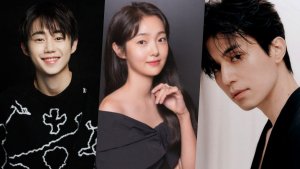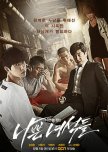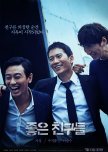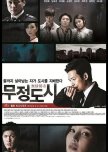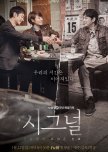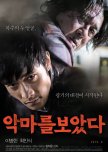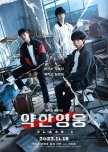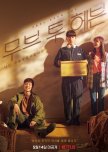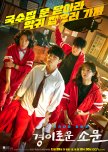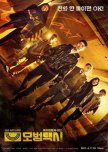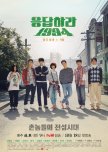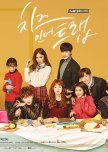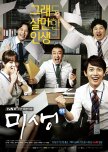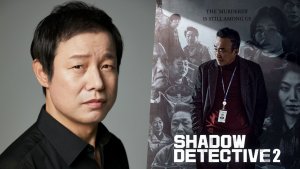 Jung In Ki Added to the Cast of "Shadow Detective Season 2"
Jung In Ki Added to the Cast of "Shadow Detective Season 2" Ryu Sung Joon, Ryu Sung Hoon and Jo Eun Ki become involved in a serial murder case involving jury members as the victims. These three individuals try to uncover the truth behind the deaths. Ryu Sung Joon works as an enthusiastic detective. He is always determined to catch the bad guys. Due to his determination, his arrest rate is always among the top for detectives. His older brother is Ryu Sung Hoon and he works as a judge. Ryu Sung Hoon is a perfectionist and smart enough to have passed the bar exam with the top score and graduated at the top of his class at the Judicial Research and Training Institute. He is an upright man who does his best to impart a fair judgement. Jo Eun Ki works as a social worker. She has a warm heart and is full of justice. She always puts people first and tries to be a reliable guardian to children who come from poor backgrounds. (Source: AsianWiki) Edit Translation
- English
- ภาษาไทย
- Arabic
- Español
- Native Title: 블라인드
- Also Known As: Beullaindeu
- Screenwriter: Kwon Ki Kyung
- Director: Shin Yong Hwi
- Genres: Thriller, Mystery, Drama
Cast & Credits
- Ok Taec Yeon Main Role
- Ha Seok Jin Main Role
- Jung Eun Ji Main Role
- Jung In Ki Support Role
- Jung Eui Wook Support Role
- Park Ji Bin Support Role
Reviews

Exciting, yet gloomy thriller. The murder case being tried by a jury is just a kick off for more…
"Blind" is a fabulous, exciting, somewhat dark thriller."Blind" weaves its fictional story around 'survivors' of brutal child abuse and severely traumatizing exploitation as kids. These 'survivors' meet each other and their perpetrators 20 years later as adults. Each of those involved tried in his/her own way to come to terms with the past and lead a more or less normal life. Not only the abusive childhood, but also its psychological effects on their later life are a severe issue - and become a topic here. In addition, in this context complex interdependencies between the perpetrators of the time are dissolved and - against the background of a brutal variant of public vigilante justice - the original roles as perpetrators and victims are turned upside down.
"Blind" is haunting. The focus is on a murder case that is being tried by a jury. More murders follow. The dramaturgical setting is to some extent perhaps a bit reminiscent of an Agatha Christie novel - insofar as suddenly almost everyone in the case-related group of the selected jury could be the perpetrators... the distribution of roles between judges, investigators, victims and presumed suspects is also becoming increasingly opaque and fatefully intertwined. To pretend that one can turn a 'blind' eye to what used to be is no longer possible. Everyone must now look at the past and (even if it is perhaps a little late) bear the consequences. Magnificent.
----- SIDE NOTE: ---Child abuse - a sad and highly topical issue in South Korea ---
The thriller obviously saddles its story on the unspeakably sad topic of child abuse, which due to its unbroken topicality has increasingly made it into South Korea's series and film productions of recent years (among others "Children of Nobody" and "Mother" as drama or "Miss Baek" and "Bring me Home" as movie.) Many a well-established member of society prefer to look the other way when unbelievable deals are being made concerning minors, as long as they might even benefit themselves. And any 'survivors' can be glad if they manage to split off the traumatic experience to some extent - nevertheless most often PTS comes right along. Usually, those ´survivors´ until old age are psychologically still stuck in that desperate helplessness and inner agony of the past.
A South Korean government study from 2021 reveals, that abusive trafficking in minors has been rampant and even increasing in recent years. There is an acute need for action regarding more effective education in all public areas - from prevention to investigation and criminal prosecution up to employee training. A big problem with this: usually police officers or other officials are directly involved and work together with the traffickers, who specialize in the ruthless exploitation of minors. If the children and young people survive this, the psychological consequences of these deeply traumatizing experiences will be very hard - if at all - to be overcome. They are left helpless at the mercy of adults (who actually should take good care of them) and utterly hopeless in the face of a society that turns a blind eye to their torment. The only thing that is left: feeling betrayed and/or obviously of no worth whatsoever...
--------------------------
PS:
It may be that in reality a larger task force would have been set up to investigate the serial murders of the jury members. In my opinion, however, the KDrama didn't take anything away from keeping the circle compact in order to tell the story in its essential entanglements in a powerful way.
P.P.S.:
At last, I don't want to leave a pleasant detail (I think) unmentioned. We have seen it so often in KDramas: within the social ranking in South Korea, the older colleagues are obviously allowed to rebuke the younger ones with a shove, a kick or a snap on the forehead. (In view of my German socialization background, that is unheard of, but ...) In "Blind" one can now observe (among other things) that a transformation in this natural ranking behavior may be starting to happen within the younger generation: a colleague police officer in "Blind" actually gives back to his colleague and stands up for himself. So far, I have seen this rather rarely, if at all. Until now, as a rule in comparable situations, the fist usually remained in the pocket. In the mass consciousness, KDrama is relating to, starting 2022 such physical rebuke might obviously no longer be tolerated as a matter of course. Stand-up-for-your-rights seems to/wants to become possible - like a wind breeze of change coming up within a hierarchical tradition since centuries chiseled in stone...

The best thing to do is to go into this drama blind
TL; DR: It's a drama that deals with a lot of difficult issues, particularly surrounding child abuse and adults' constant abuse of power, which ends in a lot of people (especially the victims) being let down. And for the most part, it is a revenge story with main characters who want the truth to be revealed. A really interesting and eye-opening watch. (I'm sorry this review is soo long)---
You know how you’ll accidently tangle your earphones and try to undo the knots, but every time, a new, much smaller knot appears? You can’t just simply unravel it, that’s now how it works. It takes precision and dedication. And that’s how I sum up this drama. And if that sounds interesting, give it go! ? And the fact that the end has to mention that children and animals were kept safe during the shooting should indicate the type of drama that this is (i.e., it deals with heavy topics which I will include in a trigger warning at the end, so no one is accidently spoiled).
So, why is it called blind? Because in a world where children are most vulnerable, they are not being protected by adults. Instead, they are broken down by the adults around them. These adults are easily able to turn a blind eye to their own wrongdoings, both in the past and present. So much so, that when karma is coming back around, they still maintain a level of blindless where they refuse to accept responsibility or even acknowledge the fact that they are shitty human beings, like literal scum. The main characters, however, refuse to be blinded by this. They work to protect people who have been wronged and get them the support they deserve.
Now, on to the actual review…
---
Hm... I almost slightly regret starting this during the first week. It's a thriller. And it's confusing. Not because it's complicated, but more because you don't really know ANYTHING. But despite all that, it's very intriguing.
/PLOT/
I don't have much to say because it's a very mysterious plot. It's a drama that relies on flashbacks at the start of episodes that slowly reveal more and more like a jigsaw puzzle … that just never seems to end..? I'm eager to be able to understand everything that has happened between the flashbacks and present day, and finally connect all the puzzle pieces, yet nervous to know all the bad things that have happened.
The best one sentence synopsis I can give you is: A revenge story focusing on hurting the people around the targets/puppets, rather than the puppets themselves, with an unknown puppeteer controlling everything/everyone.
To add to that, I do think the pacing is okay. It's fast paced in the sense that it feels like the side characters are doing more of the work whilst main characters are in danger. Although this does change, it doesn't exactly feel like the plot is progressing, but I will expand upon that a bit in the next paragraph.
I did have a small gripe early on with how everything seemed so contrived. And I will say that I managed to figure out how it was possible toward the end, and it was then confirmed in the last few episodes, so I'm happy about that. They did manage to fit everything in nicely, in my opinion. Other than that, I also have to bring u the fact that SUNG JOON kept doing his police duties ALONE. He would randomly go meet up with a perpetrator in the middle of the night to arrest him by himself, despite spending the day with his team trying to find said person. Why does he not have a partner??
But since then, another annoyance came into existence (to do with choice the writers made). This will probably count as a spoiler so BEWARE and just skip this paragraph if you want to
⚠️ So, as I previously mentioned, rather than targeting the real baddies, they targeted their children. And in every single case, their children were daughters. And the kids all locked up in Hope Welfare Centre were boys. And I'm not sure why, it just feels icky, especially since nearly all of the baddies were men. So, in order for a character to exact their revenge, they targeted the children of the people they hated, without thinking about how it would affect the children of the buddies' children, for example. I can't quite explain why, but it rubs me the wrong way. Also, one girl who was killed had no connection to the Hope Welfare Centre other than knowing EUN KI. I also just don't understand why she had to be killed, or the events leading to her being in danger in the safest place for her. ⚠️
This begs the question then, when is revenge taken too far? At what point do these innocent victims exacting revenge on behalf of their childhood selves just become just as bad the perpetrators who caused them so much grief? Definitely a bit of a morality thing to consider. Also, the plot twists were good.
/CHARACTERS/
The main characters that we follow seem slightly unique compared to other thrillers. We know who the protagonists are, but as for the antagonists, they remain, to some extent, a mystery. There is also more than one antagonist. But we're not following the person exacting revenge, instead we're following three people who are also just trying to understand what is going on, just like the audience. In that sense, it's very refreshing, but it's easy to wish that they would hurry up and figure at least one thing out. I feel like the side characters know more than the actual main leads at times, which can be frustrating, especially since I'm waiting for the characters to be on the same page and understand they have a common goal.
the FL (EUN KI) is the rational mind, the third-party perspective that - for the most part - doesn’t necessarily have any personal ties to most of the characters. The two MLs on the other hand are a bit different. Whilst one is more rational (SUNG HOON) than the other, he’s still involved in a way that causes him to fight with the other ML, who happens to be his brother (SUNG JOON). Despite the annoyance some of the characters bring me, I still enjoyed watching them, and I did for the most part like them. SUNG JOON is definitely annoying towards the start because he just does not listen, but I do tend to root for him more and I like him. SUN HOON was definitely a bit boring. He did have some nice interactions with YU NA (a side character connected to EUN KI) which I appreciated for its wholesomeness. And EUN KI, EUN KI, EUN KI. My favourite character by far that pretty much just became a background character. Towards the end, she just started slowly disappearing and there were less and less scenes with her. And her contribution seemed to also dwindle and her role as a character, role in the story, and her role as a social workers became less significant. And I truly did miss seeing her by the end. I think that once more information was revealed, she writers of this drama kind of put her in her place and didn't really let her move.
/MUSIC/
In most thrillers, the music tends to be subtle, and this is no exception. It's not constantly there, but I like it when it is. If anything, this has more of a film score than anything. It's eerie and quiet and it works. For the actual OSTs that exist, I really like them. There is one song that kept being played in the final episode which I'm trying to find still.
/REWATCH/
Thrillers in general can be fun to rewatch because it's nice to be able to go back and pick up on small things and understand them better. And with a drama like BLIND, I can't wait to be able to binge watch this (probably years later) but be able to pay attention to detail a bit more, particularly the characters themselves.
/OVERALL/
I actually liked the ending, in terms of where the main characters ended up. But at the same time, I feel like justice wasn't fully served. Certain people were just slightly tossed to the side to make room/screentime for the main characters, and we didn't get to see them being fully punished because of it. And I kind of feel numb now. I'm sat her just wondering what to rate it and how I even feel about it. I am sad that it has come to an end. I had high hopes - 2022 has given us a lot of thriller kdramas, and I hope this can be added to my list of favourites with a satisfying ending! But still, I think I just want to forget about this drama for a few weeks, come back, and really deduct how I felt about this.
I also want to mention the importance of a character like EUN KI. As SUNG JOON mentions in the final few minutes, if those kids had someone like EUN KI to support them and guide them, a lot of things could have turned out differently. But of course, at the end of the day, the fault is on the people who ultimately abused their power by either abusing others, by turning their head the other way and ignoring those in pain. And I think that this drama raises those very important points.
---
[02/10/2022 update - some comments I have after watching eps 5 and 6 - no spoilers] I just didn't know how to fit it into the review...
I'm almost annoyed with how slow certain things are progressing.
Also, I have a few theories on who's who but because the side characters are hardly ever seen, it's easy for us to suspect them since we hardly know them.
And some of it seems SOOO contrived and obviously fictional. E.g., what are the chances that the victims and perpetrators of a case, along with the police and judges involved and the jurors are (nearly) all somehow connected through their past (which is extremely dark). I'm expecting some very good storytelling when it comes to the mastermind behind all this considering this person has managed to get them all in the same vicinity and is messing with all of them to this extent.
I will say that SUNG JOON is so freaking impulsive that it began to bother me. He's that one character in a horror film who goes through the door when we all know he'll be killed. Like, come on!! Your brother tells you to make sure you tell him before doing something, and you just decide not to? He's constantly putting himself into situations where he could be seen as suspicious, and he doesn't seem to care...? Or realise why it's such a bad decision.
---
tw // child abuse, murder, kidnapping, torturing, mentions of sexual assault

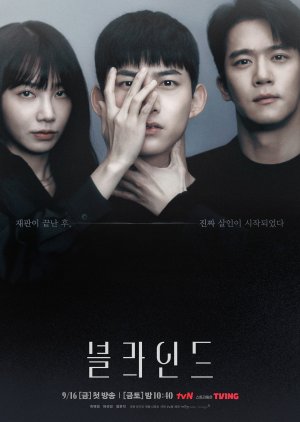





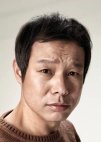
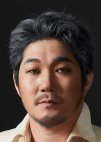

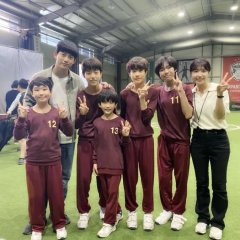
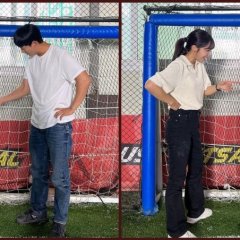
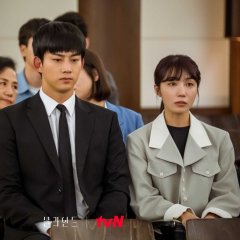
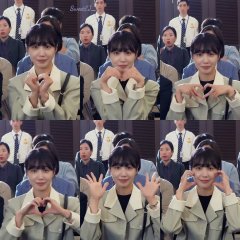
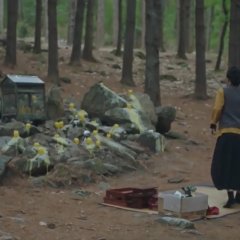
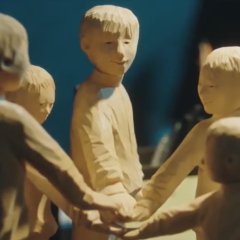
 1
1